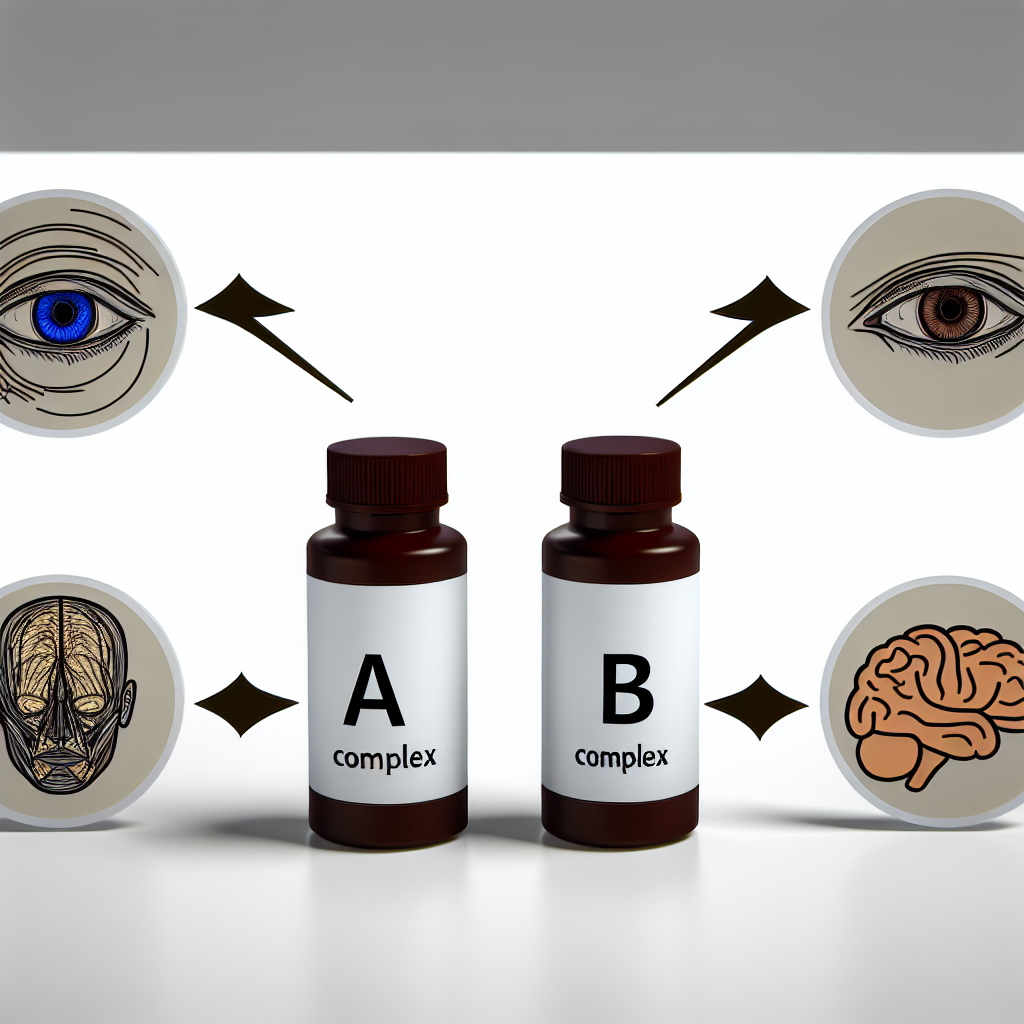Have you ever stopped to consider how the vitamins you consume impact your daily well-being? From boosting your energy levels to improving your skin and strengthening your immunity, vitamins are integral to overall health. Among the most critical are Vitamin A and B Complex, two distinct types of nutrients that provide essential support to the body through very different mechanisms.
In this guide, we’ll explore the unique roles, dietary sources, health benefits, and safe usage tips for Vitamin A and B Complex. By the end, you’ll have all the tools you need to make informed nutritional decisions to fuel your body.
What is Vitamin A?
Understanding Vitamin A: Why It’s Vital for Health
Vitamin A is a fat-soluble vitamin primarily known for its role in vision health, but it also supports your skin, immune system, and overall cellular function. Unlike water-soluble vitamins, Vitamin A is stored in your body’s fatty tissues and liver for future use, making it unique in how it’s utilized by your system.
Key Benefits of Vitamin A
- Vision Support: Vitamin A helps create rhodopsin, a pigment essential for seeing in low-light conditions.
- Healthy Skin: It promotes cellular repair to address dryness, acne, and uneven texture.
- Boosting Immunity: Strengthens mucous barriers in your gut and respiratory tract, protecting against germs.
Common Sources of Vitamin A
Vitamin A comes in two forms:
- Preformed Vitamin A (Retinol): Found in animal products like beef liver, eggs, and dairy.
- Provitamin A (Beta-Carotene): Found in plant-based foods such as carrots, spinach, and sweet potatoes.
Tip: Choose colorful foods! Vegetables like carrots, kale, and mangoes are rich in beta-carotene to naturally boost your Vitamin A intake.
What Are B Complex Vitamins?
The Role of B Complex: More Than Just Energy
When you think of B Complex vitamins, think energy and mental clarity. Rather than being one vitamin, it’s a group of eight water-soluble vitamins that play synergistic roles in supporting metabolism, brain health, and cell function.
Key Benefits of B Complex
- Energy Production: B1 (Thiamine) and B12 help convert food into fuel, giving you the energy to power through your day.
- Mental Health: B6 and B12 support neurotransmitter production, keeping your mood and cognitive functions in check.
- Red Blood Cell Formation: Prevents anemia by producing healthy red blood cells that transport oxygen efficiently.
Common Sources of B Complex
Each of the eight vitamins can be found in various foods:
- B1 (Thiamine): Whole grains, nuts, and pork
- B2 (Riboflavin): Eggs, dairy products, and spinach
- B6: Bananas, potatoes, and poultry
- B12: Fish, fortified cereals, and eggs
For a quick, nutritious breakfast, try sautéed spinach with eggs and whole-grain toast—it’s packed with B Complex vitamins to keep you energized all morning.
Vitamin A vs. B Complex: Key Differences
How Do Vitamin A and B Complex Differ?
| Vitamin | Main Function | Storage | Sources |
|---|---|---|---|
| Vitamin A | Vision, skin, immunity | Stored in fat | Carrots, sweet potatoes, liver |
| B Complex | Energy production, brain health | Excreted in urine | Leafy greens, eggs, fortified cereals |
Vitamin A focuses on maintenance and repair, while B Complex drives energy and cell function. Both are essential for a balanced, healthy lifestyle.
Benefits of Vitamin A and B Complex in Daily Life
The Health Benefits of Vitamin A
Getting enough Vitamin A supports:
- Eye Health: Protects against night blindness and macular degeneration.
- Skin Repair: Improves hydration and reduces the appearance of dryness or acne.
- Stronger Immunity: A fortified immune system protects you from bacteria and viral infections.
The Health Benefits of B Complex
B Complex contributes to:
- Stable Energy Levels: Converts food into fuel to keep you energized and productive.
- Sharper Focus: Vitamins like B6 reduce brain fog and improve concentration.
- Stress Relief: Regulates mood by supporting neurotransmitter production.
Safe Usage: Avoiding Side Effects
Vitamin A Risks
While essential, excessive Vitamin A can lead to toxicity. Symptoms include nausea, dizziness, or liver damage. Pregnant women should be cautious, as high amounts can harm fetal development.
Recommended Daily Intake: 700 to 900 mcg/day for adults.
B Complex Risks
B Complex is generally safe due to its water-soluble nature, but extremely high doses of B6 can lead to long-term nerve damage. Always stick to the recommended doses.
Where Should You Start?
Prioritize Food Over Supplements
Whole foods should always be your first choice. Include Vitamin A-rich vegetables like carrots and sweet potatoes and B Complex-packed options such as leafy greens, eggs, and whole grains in your meals.
Consult a Professional
If you suspect a deficiency—whether it’s persistent fatigue, dry skin, or brain fog—consult a healthcare provider. They can recommend whether dietary adjustments or supplements might be helpful.
Final Thoughts: Fuel Your Body with Vitamin A and B Complex
Both Vitamin A and B Complex vitamins are essential for a healthy, thriving body. From clearer vision and hydrated skin to steady energy and mental clarity, these nutrients provide incredible benefits that make them worth prioritizing in your daily routine.
Start small. Add colorful vegetables, whole grains, and lean proteins to your meals this week. If needed, consult your doctor for tailored advice on supplementation. Simple changes can make a remarkable impact on how you feel and function.
